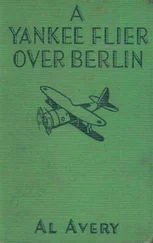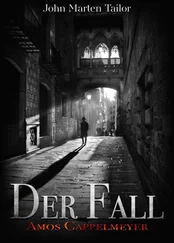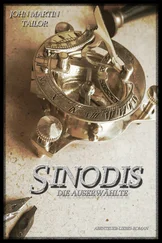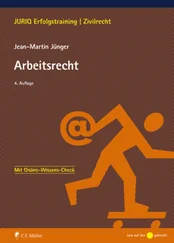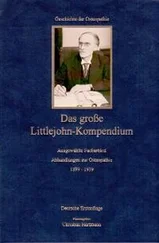The temptation of eating it all as soon as it arrived was, on the advice of more experienced Krieges, resisted, but it took strong willpower and the experience of the long wait for the next issue to see the wisdom of this.
Also prepared daily and distributed by the communal kitchen was the midday soup which was no more than boiled swede. It was brought to each hut in a wooden tub and as another permanent fatigue, one man had the job of ladling this out to everyone in the hut. This was easier to share out than the bread because each man’s share could be measured using a skilled eye and hand with the ladle and making sure the watery soup was stirred frequently to distribute the lumps of swede. The only differential in the portions was that the splinters of wood that came from the tub became much more evident towards the bottom, and it was an acquired skill to separate the swede from the wood before spitting out.
It is no surprise to learn I was around twelve stone when I was captured but over the course on my internment I, like everyone else, lost a lot of weight◦– and strength, we didn’t want to do much at all but lay on the bunks◦– and was only around nine stone coming out; we were like skeletons.
*
We were forever on edge, living with the fear of what may happen next. There was one alarming incident, early on, that demonstrates this perfectly. One afternoon, without warning, two guards came into our hut armed with rifles and bayonets. They were accompanied by one of the security guards known as ferrets, who were always to be treated with suspicion as despite their seemingly innocent ‘just passing by’ attitude, they were very much on the lookout for any illegal activities or possessions. On this occasion there was just one single purpose◦– he had come to take the Frenchman away for further questioning.
Maurice looked terrible, but there was nothing any of us could have done to help, as he was marched out between the guards, while the ferret searched his pitiful left-behind possessions. Happily, we did hear later that he had been returned to the camp after this ordeal.
Our Camp Leader or Man of Confidence, to use his official title, was aware of what had happened and demanded to speak to the Camp Commandant. It was said that he got full co-operation from him (it was no secret that the ordinary German military had no love for the Gestapo or the SS), which was not surprising to anyone who knew him.
*
James ‘Dixie’ Deans, a Scottish bomber pilot who was shot down in 1940, spoke perfect German and became a renowned prisoner of war camp leader. He was eventually awarded the MBE and became a founder member and first president of the RAF Ex-POW Association. In 1945, he was to guide two thousand Allied POWs across Europe in what was known as the Long March, but more on that later.
Deans had the absolute trust and admiration of all the prisoners. He had that rare quality of being able to get respect from all, and yet he never shouted or threatened. He was always calm and collected and knew just how far to push the Germans and be uncooperative without risking a mass execution of those under his leadership, and yet he still earned and maintained the respect of our captors. I will never forget him or cease to be eternally grateful that he was there to guide and protect us.
Chapter 5
Life Behind the Wire
The course of one’s life can be greatly altered by a single event and, although I had no idea at the time, there soon occurred one such instance in which fate was, once more, to be kind to me and make a significant difference in the way I was treated in my POW life.
The Germans had decided to shake things up a bit and we were told by the guards to pack up our meagre possessions as we were to be moved across to K lager. While David and I were not moved into the same hut this time, he was placed in a hut just opposite; we were still in close and easy contact.
Settling into my new hut I could see distinct signs of more organisation, which was understandable because most of the prisoners there had been in captivity for considerably longer than us new arrivals. They were very welcoming, and I was invited to join a long-established group of five who always sat at the same table and to some extent shared things, but not food. This was always individual as it was so precious.
Interestingly two of the group or combine, as each group was known, were from my squadron. They had both been in the Bag, as our internment was sometimes referred to, for around two years. I had to bide my time to catch up on old times as talk of the squadron was only safe when walking the circuit.
The first example of organisation in K Lager came on my first day there, when a smartly dressed man wearing collar and tie, which was a rare sight, entered the hut. He was obviously well known to all but me, and they knew what he had come for. Simultaneously space was cleared for him at one of the tables. A man was posted on each of the windows and the door was closed, and all went quiet. In a cultured voice, very similar to that of a BBC announcer, he spoke out, ‘This is the news in English’, and he went on to read from a sheet which contained, what we would call today, news headlines.
A little trick that the newsreader had at hand, I heard about later, was that if a ferret came into the hut during the reading, he had at the ready a copy of the German news bulletin, and he would switch quickly to this, which was perfectly legal.
Although this service, which sometimes took place twice a day, was eagerly anticipated and greatly appreciated, it could dampen the spirits a touch as the progress of the war appeared to be very slow or static at times. We were impatient waiting for the day when soldiers would come, break down the gates and set us free. It wasn’t until some time after the war was over that it was revealed what a bitter and courageous struggle the armies had made to make the progress they did, on all fronts, and we realised how even more grateful we should all have been for their sacrifices. I think the media, as it is called today, tended to emphasise the good bits and not tell of the bad. Perhaps they were made to do this to boost morale at home, however, I will tell later of one instance where this policy did not go down well with those fighting the war right at the front.
Very shortly after being moved to K Lager all new arrivals were instructed by their various hut leaders to attend a meeting. No reason was given, we were just told to be there. It turned out we were to be seen individually by a panel of much-respected old timers from A lager. Some of these claimed they had been in Germany longer than many millions of Germans, which I suppose was true, but they were not rewarded for that. They had earned respect for being clever, reliable people who had assisted the Camp Leader in his arduous work whenever needed.
It came as a shock when my turn came to take up the seat in front of them, to realise that I was being interrogated by them to ascertain whether I was genuine RAF or not; I soon saw the sense in what they had done.
My identity verified, they wanted to know all I had seen during the journey from Dulag Luft, especially the rail traffic. One or two questions about what I was asked at Dulag Luft followed and then I was thanked, reminded to keep my trap shut, then, with a wink and a smile, dismissed. I had more sense than to ask what it was all for. I never imagined that in about a year, in a very humble way, and only for about two weeks, I would be helping in this sort of work.
*
While it didn’t do to dwell on such matters for too long, thoughts did drift back home to your loved ones. Our only contact was by letter, but such luxuries were few and far between. Prisoners could write a lettercard home once a month. It was known by us that this would be heavily censored before leaving Germany, so it was difficult to know what would be allowed through. Likewise, we could receive one letter a month.
Читать дальше

